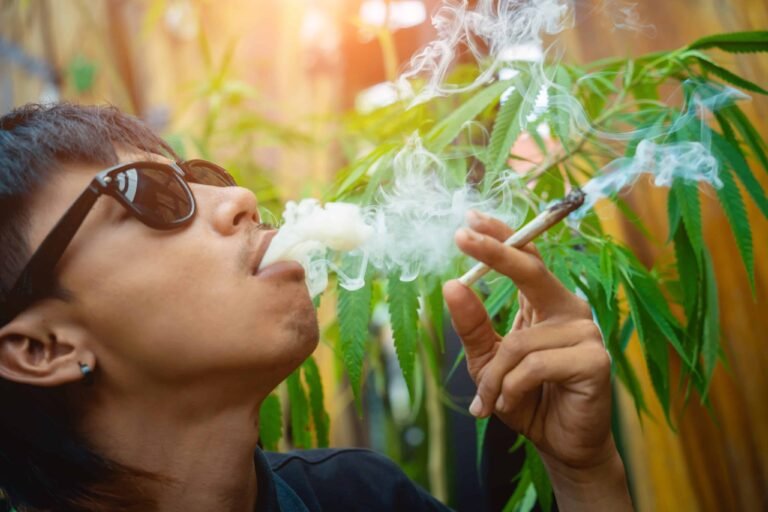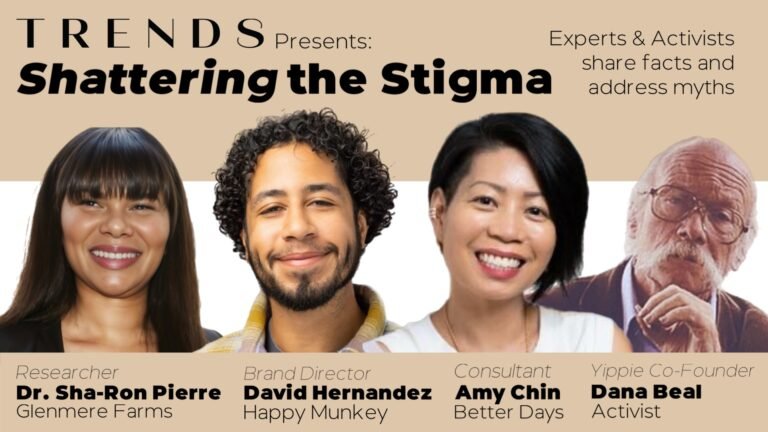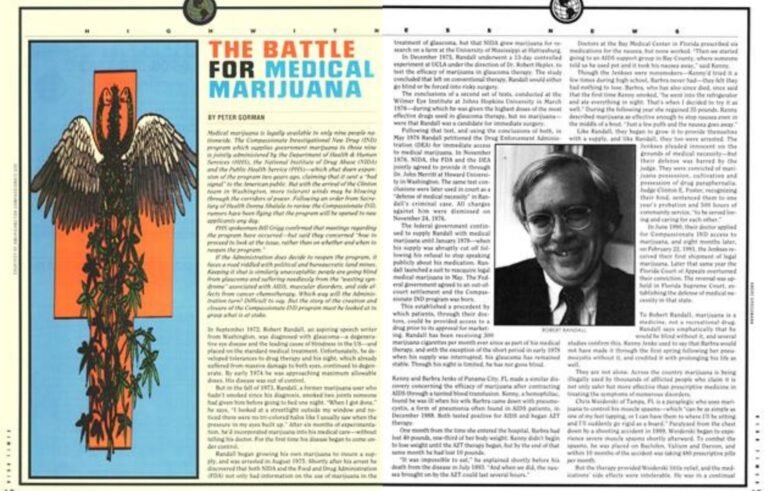Rumor Has It: Is King Charles III Growing His Own Medical Cannabis?
In recent weeks, a shocking headline has been making the rounds again: “King Charles uses medical cannabis to treat his cancer.” Some reports even mention a “small grow” at Highgrove along with oils recommended by Swiss doctors. So, what’s going on?
For many, cannabis is a trusted companion in the face of serious illnesses: cancer, chronic pain, multiple sclerosis, chemo-induced nausea, insomnia, and more. It may not be a miracle cure, but it can soften the blow of aggressive treatments and improve quality of life.
In the United Kingdom, around 55,000 people already have access to medical cannabis prescriptions, using it regularly and under medical supervision. And, to the surprise of many, this may even include the Royal Family.
In February 2024, Buckingham Palace announced that Charles III had been diagnosed with ‘a form of cancer’ during treatment for an enlarged prostate. At 76, the official statement said he was beginning regular treatments and would step back from public duties, though the specific type of cancer was never disclosed.
‘His end is near’: The tabloid tone that lit the fuse
Since then, the king’s health has remained under the media microscope. EDATV quoted a “source” who declared: “He knows his end is near.” Rumors swirl around signs of frailty—whiskey to dull the pain, a cane always nearby, mood swings, hospital stays—and whispers of alternative remedies to ease the suffering. Among them: the cannabis plant.
Both inside and outside the palace, whispers suggest King Charles may be using medical cannabis to ease symptoms linked to treatment, and even discreetly cultivating a few plants in a Highgrove greenhouse to benefit from their pain-relieving properties. Reportedly, the move was encouraged on the advice of a Swiss doctor.
Multiple reports have also noted that the monarch’s care is said to be overseen by Dr. Michael Dixon, a well-known —and often outspoken— advocate of complementary therapies.
Beyond the gossip which, according to outlets, comes from sources very close to the royal family, the theory aligns with a long-standing trait of the monarch: his openness to integrative medicine and plant-based remedies. And that’s where this story steps away from mere rumor and gains more context.
A love story between Charles and the plant
King Charles’s connection with plant-based medicine goes back a long way: organic farming, phytotherapy, and an openness to integrative approaches.
“The King has always had a very open mind when it comes to natural medicines,” a close neighbor shared. And added: “He’s cultivating a small amount of cannabis in the hope that its medicinal properties will ease his pain without sparking a scandal.”
This side of the monarch is both public and well-known. Cannabis culture lore recalls that back when he was still a prince, he was already championing “green” materials and practices, long before his coronation. Even within palace circles, he’s described as someone with a healthy lifestyle; attentive to conventional treatments, yes, but never giving up on his natural medicine cabinet.
His interest in organic farming and natural remedies is undeniable—something he has openly acknowledged. The bond with the plant even has its dates and places:
- In 1998, during a visit to a day center in Gloucestershire, Charles asked a patient with multiple sclerosis if she had considered cannabis under strict medical supervision. Calmly, he asked: “Have you tried cannabis? I heard it’s good for MS,” showing that, even back in the ’90s, he was aware of the plant’s positive effects on such complex conditions. It was an unusually candid gesture for the time—one the British press quickly picked up on. The patient later told The Guardian: “He asked me if I had tried taking cannabis, saying he understood that, under strict medical supervision, it was one of the best things for it…”
- In 2007, he was photographed next to cannabis plants in the Poison Garden at Alnwick Castle, an educational garden that keeps psychoactive species under lock and key for teaching purposes. Among the more than 100 species are cannabis, coca, and opium poppies. The scene reinforced the image of an heir fascinated by botany and the pedagogy surrounding plants.
- Four years later, in 2011, he unveiled an eco-friendly house at the Ideal Home Show featuring hemp insulation, part of his push for low-impact materials and bio-based solutions for everyday living.
- His wife, Camilla, has also shown interest in cannabis. In 2019, she stopped at the Swiss Cottage farmers’ market in north London to chat about cannabis-derived oils and their usefulness in chronic conditions. She said: “This oil is just fantastic. It helps so many people. I’ve spoken with individuals who had serious conditions like epilepsy and found real benefits.”
All of this weaves a coherent backdrop: if people today are talking about King Charles III and medical cannabis, it doesn’t come out of nowhere. It’s the logical extension of a long-standing curiosity for the natural and the integrative, now being put to the test in the most difficult chapter of his public life.
Behind closed doors: Mood swings and work life at Highgrove
“Charles has always led a healthy life; that’s why the diagnosis angered him so much,” shared a palace staffer. Nothing unusual there. What did spark headlines, however, was the idea that the demands of this ancient-yet-modern medicine might be clashing with the monarch’s sharp reactions.
According to reports in Marca, the king’s mood has been mercurial: kind one day, irritable the next—especially if “the garden isn’t exactly as he left it.” For staff, they say, it was like “walking on eggshells.” When he is “off cannabis,” they claim, the king grows tense.
This factor, along with other issues such as wages “well below the national minimum,” physical exhaustion, and a worsening workplace climate, has reportedly driven 11 out of 12 gardeners at Highgrove to resign.
Other sources, however, cast doubt on such revelations and question the supposed closeness between King Charles and cannabis, though they stop short of outright denial. Kristina Kyriacou, former Communications Secretary to the then Prince of Wales, said the king will be “philosophical and curious,” adding: “He will have a blend — he will be receiving traditional treatment, but he will use the opportunity to use this to be more enlightened.”
Embracing both his obsession with the garden and the discomforts of a complex illness, word has it that Charles himself decided to start cultivating cannabis inside one of Highgrove’s greenhouses to better manage the pain.
A royal insider put it this way: he’s looked at cannabis as a means of fighting the disease and also of killing the pain the cancer is causing him. He is a very open-minded chap… But it’s nothing too large – I don’t think he’s going to start selling the stuff in the Highgrove House shop”, the staffer joked.
The King believes in and supports complementary treatments such as homeopathy, seeing that they could coexist with more conventional medicine. It’s not about replacing the medicine we already know, but accompanying it in search of holistic benefits.
Cannabis doesn’t discriminate
All of this shows us that neither illness nor relief discriminates—by class, by race, or even by crown. When pain tightens its grip, everything else loosens.
For a public and “pristine” figure like the King of England to be linked to medical cannabis brings something healthy: debate. The mere possibility of a head of state turning to cannabinoids points to a cultural shift: fewer taboos, more informed questions, and a therapeutic field that’s been legal and regulated in the UK since 2018.
Photo by Roger Harris, CC BY 3.0, via Wikimedia Commons
Disclosure: The claims regarding King Charles III’s alleged use of or cultivation of medical cannabis are based on unverified reports and secondhand accounts. No official confirmation has been issued by Buckingham Palace or other reliable sources. These references should be regarded strictly as rumor and speculation rather than established fact.
This article was first published on Elplanteo.com.




![Good Grades Dispensary: Weekly Report Card [July 15, 2024]](https://cbdforinsomnia.com/wp-content/uploads/2024/07/Screenshot-2024-07-18-at-3.38.18E280AFPM-768x403.png)

